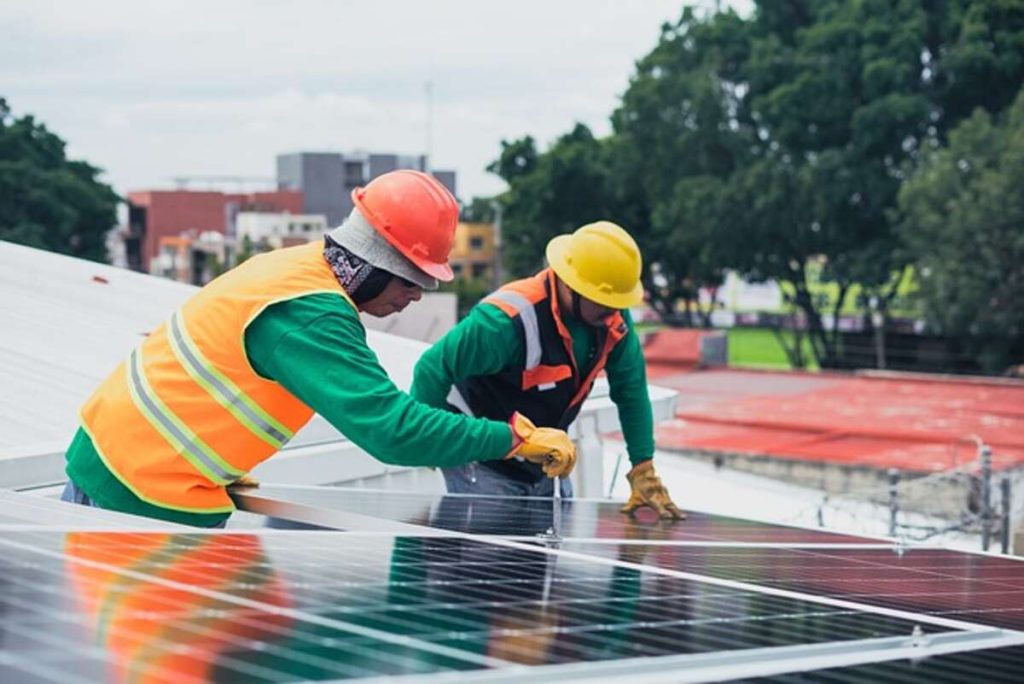Solar panel installation is one technique to attain the shared aim of reducing monthly electrical expenditures. Electric utilities in New Jersey are compelled to source a certain amount of their power from renewable energy, putting the state at the forefront of the states’ attempts to increase the usage of renewable energy. Among alternative energy sources, solar power now dominates.
Installing solar panels or solar water heaters on privately owned property qualifies the owner for a 30% renewable energy credit from the federal government. You will not qualify for this deduction if you lease rather than own your home or business. However, keep in mind that a tax credit has a direct one-to-one effect on your federal tax liability.
In addition to the government’s 30% energy credit, company owners can accelerate the depreciation of the cost of their panels (including the cost of labor) to the point where it is entirely written off in the first year of operation. In the first year following setup, this substantially reduces your tax bill.
Regarding financial incentives, New Jersey is among the most generous in the country for residential and commercial solar panel installations. The Solar Renewable Energy Certificate (SREC) program is available to residential and commercial customers. Certificates known as SRECs can be traded on the open market in exchange for financial compensation for the electricity you produce. One Solar Renewable Energy Credit (SREC) is awarded for every one thousand kilowatt hours (kWh) of electricity produced using solar power. After that, you can sell your SREC to whoever will pay the most for it (often a utility company). The SREC payment is yours to retain and can be used as a reliable source of monthly income for years. Your earnings per SREC will fluctuate based on market conditions (the number of SRECs available vs. the demand for renewable energy-sourced electricity from utility providers). More SRECs will be generated each month for larger solar panel installations.
The most direct benefit to your wallet is that switching to solar power reduces your electricity bill. The sun provides free energy. The monthly electricity expense can be reduced by switching to solar-generated electricity instead of the electricity purchased from the utility provider. There may be times when your electrical production is more than your consumption. When this occurs, the electric company will issue a credit for the extra power you’ve used. Your refund for unused credits is issued at the end of the calendar year.
Remember that adding solar panels to your home may improve its market value, but it cannot raise your property taxes. A local tax assessor’s certificate will boost your property’s value by the cost of installing solar panels. Still, you won’t have to pay any more property taxes on that value until the following tax year. The homeowner is immune from paying property taxes as long as the solar panels remain on the roof.
The hefty cost of installing solar panels has deterred many businesses and homeowners from investing. Thanks to the financial incentives, it takes less time to reach the break-even point and begin reaping the benefits of solar panels. If you want to know how much money you can save or make by installing solar panels, you should talk to your accountant about the total cost of the project and the incentives available to you. It’s essential to weigh the costs and benefits before making any decisions.
If you’re installing solar panels at your business or residence and need assistance negotiating the necessary contracts, contact Gronsky Law Office. Contact Robin Gronsky at 201-251-8001 or RGronsky@Gronskylaw.com to discuss your legal needs.
Read also: Please tell me how to clean my computer of spyware.

